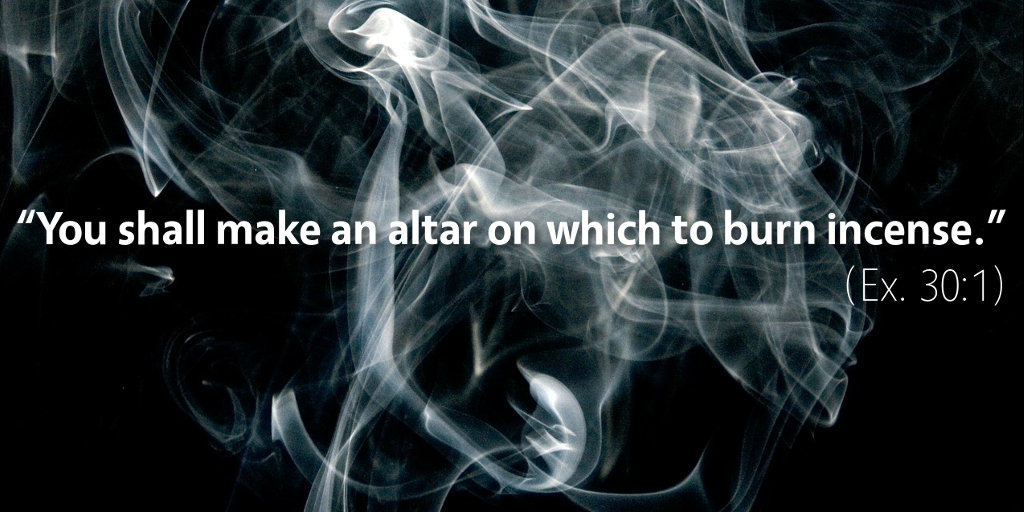Bible Readings for March 19th
Exodus 30 | John 9 | Proverbs 6 | Galatians 5
Much of Exodus 30 is focused on an important aspect of tabernacle worship: the altar of incense (Ex. 30:1–10) and the recipe for the incense that would be burned on the altar (Ex. 30:34–38). After teaching the law and offering sacrifices, burning incense was the most important aspect of a priest’s duties before Yahweh and on behalf of the people of Israel (Deut. 33:10).
The Altar of Incense was placed in the Holy Place, just in front of the veil that would lead to the Most Holy Place (Ex. 30:6). Every morning and evening, Aaron and his priestly sons were to enter into the tabernacle and burn fragrant incense on the Altar of Incense (Ex. 30:7–8). Because this incense was holy, Yahweh explicitly prohibited offering “unauthorized” (lit. “strange” or “foreign”) incense on the Altar of Incense.
Tragically, Aaron’s sons Nadab and Abihu later ignored this commandment and offered unauthorized fire and incense in the tabernacle. For their crime, Yahweh struck them dead with fire that came out from the Most Holy Place to consume them (Lev. 10:1–2).
So, we might ask, what is the point of offering incense? Why must it happen so regularly, in the morning and in the evening, and why is the incense so holy? Allen Ross helpfully explains that burning incense “was the accompanying ritual for making intercession in the sanctuary.”1 So, when the priests were offering incense, they were doing so while offering up something that God finds even more pleasing: prayers for the people of Israel.
In Revelation 5, this connection between incense and prayer is made explicit. There, the Apostle John is given a vision inside the heavenly temple of God, and he sees the twenty-four elders (representing all of God’s people: the twelve tribes of Israel and the twelve apostles of Jesus) fall “down before the Lamb, each holding a harp, and golden bowls full of incense, which are the prayers of the saints” (Rev. 5:8).
Intercessory prayer was a crucial component of priestly ministry. Yahweh commanded that the priests make such prayers for the Israelites whom they represented before Yahweh regularly, twice every day, while burning a pleasing aroma through incense. Prayer was not burdensome and unpleasant but the sweet aroma of incense offered to Yahweh as a regular part of priestly duties.
And since we who live under the new covenant are called to be God’s holy priesthood (1 Pet. 2:5), we too have the responsibility of lifting up prayers like incense to God. We are called to intercede for one another with the confidence that those prayers are held in golden bowls in the temple of heaven by the twenty-four elders who worship the Lord God Almighty and the Lamb day and night (Rev. 4:8–11).
Do you recognize the value of your own prayers?
1 Allen P. Ross, Recalling the Hope of Glory: Biblical Worship from the Garden to the New Creation (Grand Rapids, MI: Kregel, 2006), 213.
Podcast: Play in new window | Download (5.2MB) | Embed
Subscribe: Apple Podcasts | RSS | More

Scripture quotations are from The Holy Bible, English Standard Version copyright © 2001 by Crossway Bibles, a division of Good News Publishers. Used by permission. All rights reserved.


